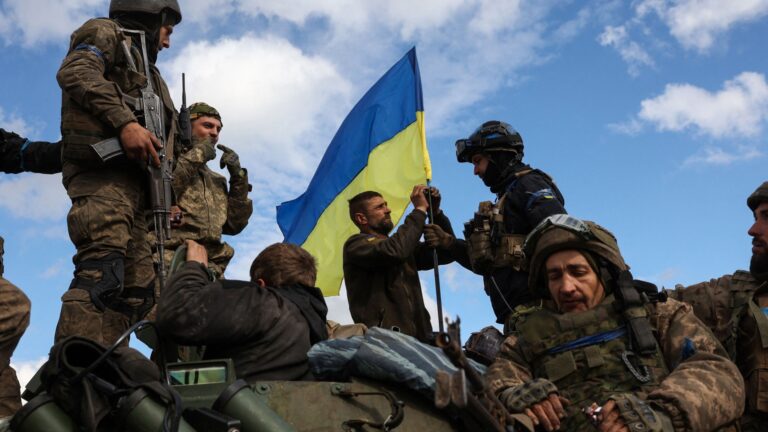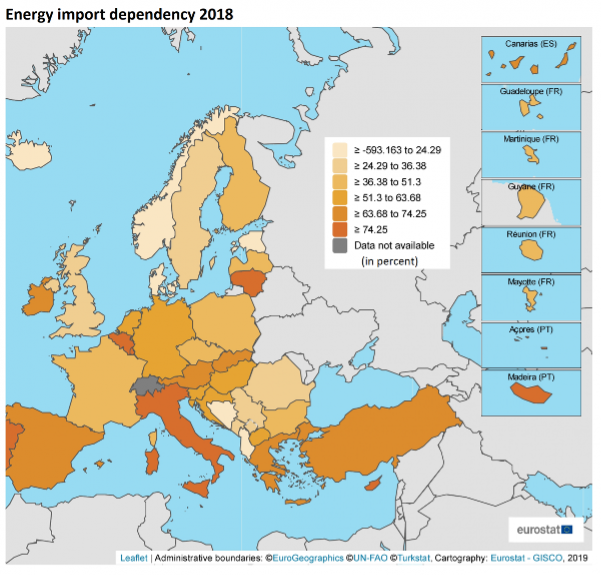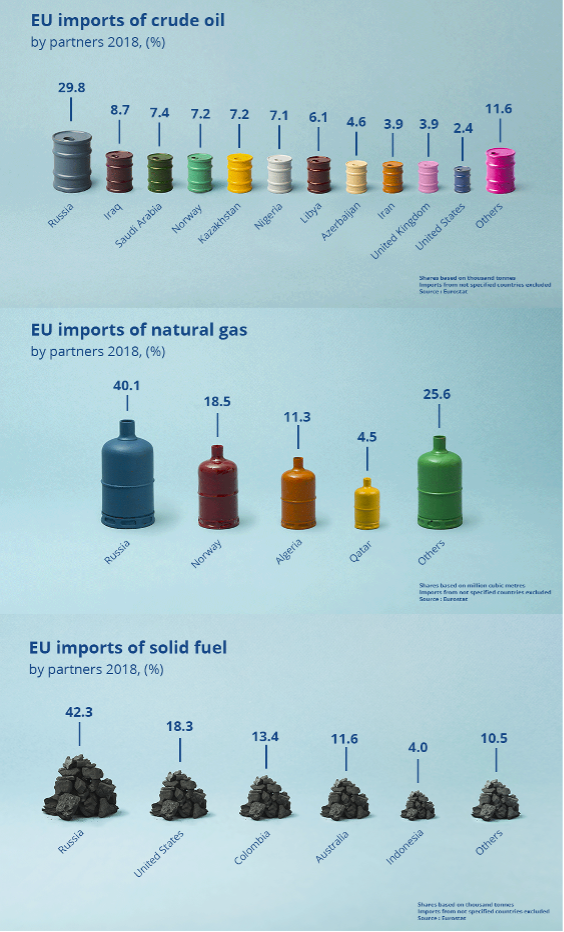Planning For the Fallout from Ukraine

As I write, surprisingly the news from Ukraine has not reached the BBC News front page. Boris’s parties and COVID still dominate.
However, I am sure that anyone involved in organisational resilience, business continuity or emergency planning will not be distracted and have contingency planning for this event centre of mind.
Ukraine is 2,500 kilometers from the UK and the conflict has little to do with our day to day. However, the fallout of a conflict in the region will be wide reaching and will impact our daily lives.
We were not well prepared for the COVID pandemic but we should prepare for the potential impacts of a conflict in Ukraine.
Europe is dependent upon imports for the oil and gas to power its electricity generating power stations. The following image from Eurostat 2020 clearly shows the problem.

Eurostat 2020 further shows the source of the imported and the concerning fact that 30-40% of the oil, gas and coal comes from Russia.

So if Putin “weaponises” the oil, gas and coal supplies by cutting them off, as is expected in a conflict, the effects on electrical power across the region would be substantial.
Energy prices are already at an all time high and Europe is not well set for the rest of the winter, with low stocks of natural gas used for heating homes and generating electricity.
Domestic production of energy has shrunk and the weather has not been helpful in balancing out the shortage from renewable sources.
Growth in demand from Asia has also drawn gas supplies in that direction and problems with French nuclear plant maintenance and the complete closure of those in Germany have exacerbated the problem.
And so, when Russia did not provide additional gas when needed the prices skyrocketed. This lack of assistance showed a more worrying flaw in the planning around European fuel sources.

The US and European leaders have worked in recent days to build a contingency plan to provide gas to meet the shortfall should Putin turn off the supply. However, global gas supplies are tight and that there is little gas available to substitute large volumes from Russia. Even if replacement resources can be found, it will also not be like flicking a switch. It will take time to balance out and the result will be shortages of fuel to support electrical power generation.
This will lead to brown outs and power cuts and cause significant issues to businesses and other organisations needing to deliver consistent services or maintain their level of work.
These are all potential but realistic scenarios.
So back to planning, we should think how brown outs or power cuts would affect our organisations and ask how you, your execs and your critical staff will be able to continue uninterrupted through events like these?
Now we are all working at home this is actually quite a complex question.
No matter how far away from us serious issues may seem, it is crucial we understand the potential knock on effect and act ahead of time for business resilience.
Reskube is built on this ethos, and whilst our product gives businesses control of their productivity by providing an enterprise solution to ensure always-on power and internet for remote staff; our vison is for connectivity to be constant, secure and seamless for every remote worker globally.
Today, to be secure, we must think ahead on a global scale even from the comfort of our home offices.

